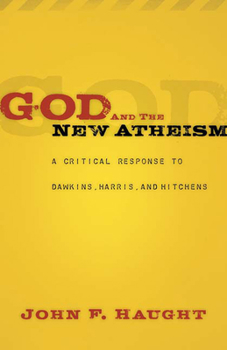God and the New Atheism: A Critical Response to Dawkins, Harris, and Hitchens
Select Format
Select Condition 
Book Overview
In God and the New Atheism, a world expert on science and theology gives clear, concise, and compelling answers to the charges against religion laid out in recent best-selling books by Richard Dawkins (The God Delusion), Sam Harris (The End of Faith), and Christopher Hitchens (God Is Not Great). For some, these "new atheists" appear to say extremely well what they believe to be wrong with religion. But, as John Haught shows, the treatment of religion in these books is riddled with logical inconsistencies, shallow misconceptions, and crude generalizations. Can God really be dismissed as a mere delusion? Is faith really the enemy of reason? And does religion really poison everything? God and the New Atheism offers a much-needed antidote to the extremist claims of scientific fundamentalism. This provocative and accessible little book will enable readers to see through the rhetorical fog of this recent phenomenon and come to a clearer understanding of the issues at stake in this crucial debate.





